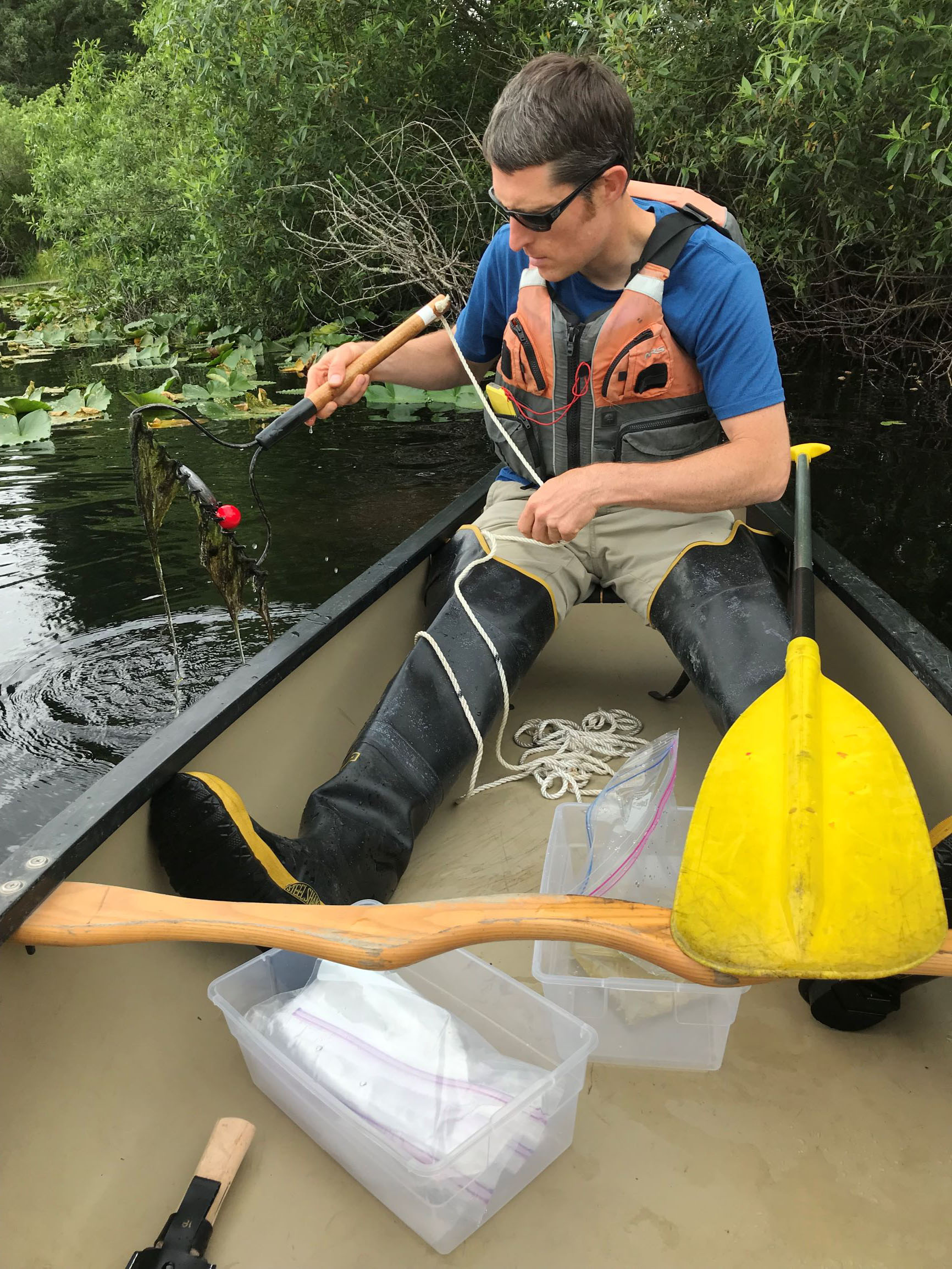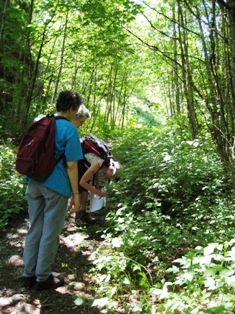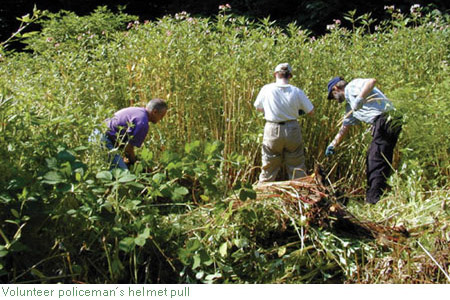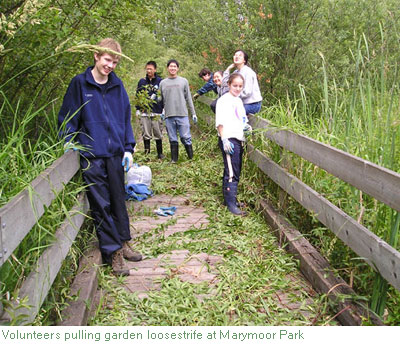Where can I volunteer to help protect against invasive weeds?
Weed watchers

Lake weed watchers
Early detection of invasive weeds growing in water is especially important because it is so difficult to remove them after they spread. King County has so many lakes we just can't survey them all. If you would like to help us protect lakes in King County, please join the Lake Weed Watcher Program and help us find aquatic weeds while there's still a chance to stop them. For upcoming trainings click here. For more information, contact Ben Peterson.
Trail weed watchers

Federal, state, and local land managers need help watching for invasive plants on trails, natural areas, and other wild places. It’s especially important to find new weed populations while they are still small so there is a chance to stop them. Learn how to survey for and report invasive weeds in natural areas through the PNW-IPC Volunteer Trainings. Report weeds that you find with the online reporting system EDDMapS.org. If you use the PNW-IPC’s EDDMapS project to report invasive plants, they will make sure the agency in charge gets the data. For more information, contact PNW-IPC at info@pnw-ipc.org.
You can also weed watch on your own. We can get you started by sending you a weed guide and helping you find a contact person for your favorite natural area or park. Make sure to sign up as a volunteer with the parks department so they will know what you are doing, and so you can find out which weeds are on their priority list. Contact us at noxious.weeds@kingcounty.gov if you would like help locating your parks contact and for a free pocket guide to noxious weeds.
Other volunteer opportunities
King County Parks and Natural Lands - contact Lina Rose. Check out The Dirt for upcoming hands-on volunteer events.
Miller/Walker Creek Volunteer Events - schedule for stewardship work parties to help protect Miller and Walker Creeks in Burien, Normandy Park and SeaTac.
EarthCorps - volunteer opportunities for individuals and/or groups to work on trails, remove invasive plants, and plant native species. Lots of great opportunities for completing Service Learning hours for school credit.
Forterra Events - volunteer events held by Forterra's Green City Partnerships
Green Seattle Partnership - forest restoration volunteers remove invasive plants, plant new native trees and understory plants, and do long term maintenance and monitoring of restoration sites.
King Conservation District - native plant nursery, restoration and stewardship projects, and more!
Mountains to Sound Greenway Trust - contact the volunteer program at 206-373-1600, volunteer@mtsgreenway.org.
Delridge Neighborhoods Development Association (DNDA)/Urban Forest Restoration - DNDA's Urban Forest Restoration Program is committed to restoring Seattle’s largest remaining forest, the West Duwamish Greenbelt and Longfellow Creek greenspaces. Volunteer events are every Tuesday and Saturday throughout the year. In addition to restoring habitat, volunteers enjoy free live music and outdoor art activities during many of our work parties.
Other Cities – contact your local parks department or utilities to see if they have work parties or volunteer events. If they don’t, offer to volunteer in your neighborhood and gather neighbors for a work party.
Where do I get money for projects?
King County Environmental Grants and Awards. List of environmental grants and awards available from King County.
King County Community Engagement Grants. The purpose of the Community Engagement Grants is to fund community projects that offer unincorporated area residents in the Community Service Areas an opportunity to participate and be more connected in their communities.
Aquatic Invasive Plants Management Grants Program, administered by the Washington State Department of Ecology. Grant projects must address prevention and/or control of freshwater, invasive, non-native aquatic plants. The types of activities funded include: Planning, education, monitoring, implementation, pilot/demonstration projects, surveillance and mapping projects. Cities, counties, state agencies, tribes, and special purpose districts (does not include lake management districts) are eligible to receive grants. Lakes groups and other private organizations must work in conjunction with their local governments to receive funding for projects.
King Conservation District Grant Program. The King Conservation District awards grants for projects that directly improve the condition of natural resources, provide education and outreach to increase awareness, build capacity to enhance implementation of natural resource improvement projects and implement pilot or demonstration projects.
City of Seattle Department of Neighborhoods Matching Fund. For more information: 206-684-0464.
Volunteer photos


Related information
- Agriculture in King County, Washington
- Northwest yard and garden
- Animals, plants and habitat
- The Dirt: Hands-on Volunteer Events
Related agencies
Program offices are located at 201 S. Jackson St., Suite 600, Seattle, WA 98104. To contact staff, see the Noxious Weed Control Program Directory, send an email, or call 206-477-WEED (206-477-9333).

 Translate
Translate